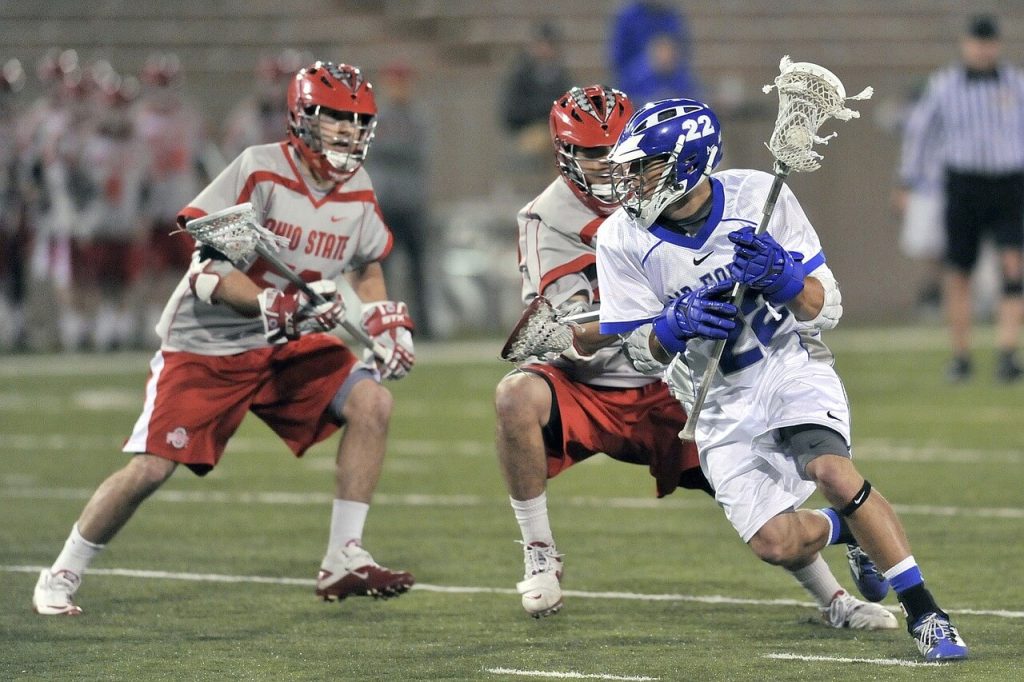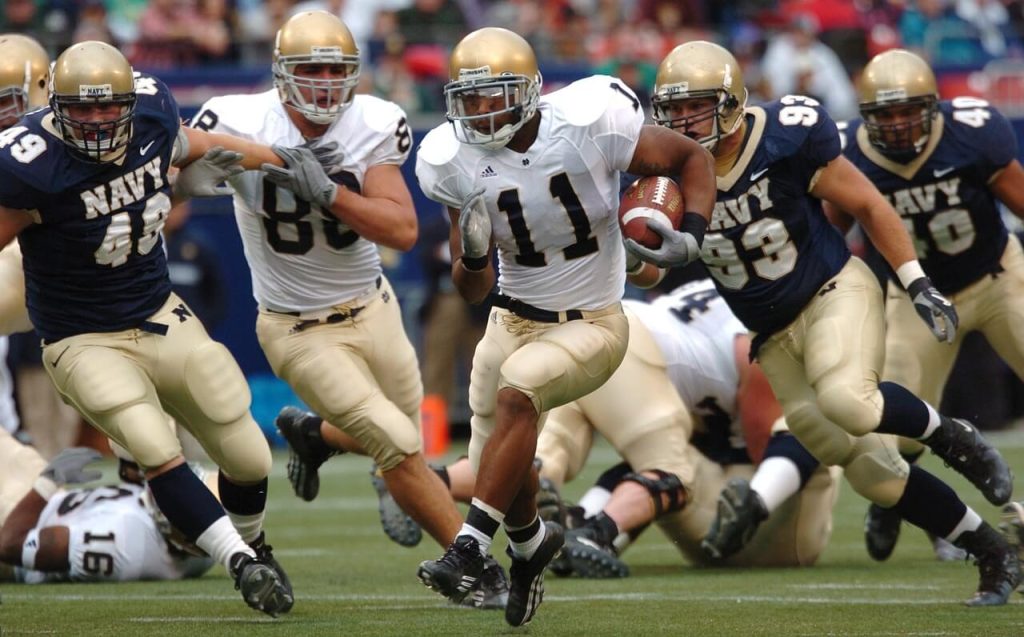In the world of sports, the roles of sports agents and sports lawyers might appear to be the same on the surface. However, there are significant differences between these two professions that aspiring professionals and clients alike should understand.
Sports agents primarily focus on representing and managing athletes’ careers. They negotiate contracts, facilitate endorsement deals, and handle public relations matters. While many sports agents hold law degrees, it is not a requirement for the profession. On the other hand, sports lawyers are legal professionals who specialize in sports law, dealing with various legal matters related to the sports industry. They represent clients in contract negotiations, intellectual property disputes, litigation, and other legal situations.
By understanding the differences between sports agents and sports lawyers, athletes and sports organizations can make informed decisions about who to work with and for what purpose. This distinction is essential to navigating the often complex world of sports representation and legal matters.
Are Sports Agents Lawyers?
Sports agents and sports lawyers are distinct professions, though there may be overlap between the two. While some sports agents are also lawyers, it is not a requirement for the role. On the other hand, sports lawyers are licensed to practice law and can provide legal advice to their clients.
A sports agent’s primary responsibility is to represent and advocate for their clients, often professional athletes. They manage various aspects of their clients’ careers, including contract negotiation, public relations, marketing opportunities, and endorsements. Sports agents must be registered and certified with the players association to negotiate contracts, even if they are not attorneys themselves.
In contrast, sports lawyers have a legal background and are licensed to practice law, enabling them to interpret and apply relevant laws on behalf of their clients. They provide legal advice related to contract negotiation, intellectual property rights, labor law, and conflict resolution. Although sports lawyers may represent athletes in various legal matters, they do not necessarily manage all aspects of their clients’ careers like sports agents do.
In some cases, sports agents may choose to obtain a law degree and become sports lawyers to expand their range of services and increase their ability to serve their clients effectively. Such professionals can wear both hats as a sports agent and a sports lawyer, offering comprehensive representation to athletes. It is essential for athletes to understand the differences between the two professions and choose the right professional to suit their specific needs.

Roles and Responsibilities of Sports Agents
Sports agents play a crucial role in the careers of professional athletes. They have various responsibilities, which can significantly impact the success and well-being of their clients. In this section, we will explore some of the primary responsibilities of sports agents, such as contract negotiations, endorsement deals, and career guidance.
Contract Negotiations
One of the main roles of a sports agent is to negotiate contracts on behalf of their clients. This typically involves researching the market value of a player based on current statistics, performance history, team rosters, and team needs. Additionally, sports agents often represent athletes during contract negotiations with teams or leagues, ensuring that their clients receive the best possible terms and conditions for their services.
Some key aspects of contract negotiations include:
- Salary negotiations
- Bonus structures
- Contract length and terms
Negotiating such contracts requires a thorough understanding of the sports industry, as well as expert communication and persuasion skills.
Endorsement Deals
Another significant responsibility of sports agents is securing endorsement deals for their clients. These deals can be a significant source of income for athletes, so it’s crucial to negotiate favorable terms in these agreements. Endorsements can come in various forms, such as product sponsorships, event appearances, and promotional campaigns.
Some essential aspects of endorsement deals include:
- Identifying suitable brands or companies for partnerships
- Negotiating financial terms and conditions
- Ensuring the endorsement deal aligns with the athlete’s image and values
Sports agents need to maintain a broad network of contacts to successfully broker endorsement deals and maximize their clients’ earning potential.

Career Guidance
Lastly, sports agents provide valuable career guidance and support for their clients. This can include advising on potential career moves, such as team transfers or playing in specific leagues, and assisting with long-term career planning. Sports agents may also help clients navigate challenging situations, such as injuries or conflicts with teammates or coaches, and provide advice on public relations and media appearances.
In conclusion, sports agents are not necessarily lawyers, but their roles often include various legal aspects, such as negotiating contracts and endorsement deals. With their unique skills and knowledge of the sports industry, agents play an essential role in shaping and guiding the careers of professional athletes.
Education and Licensing Requirements
Sports Agent
A sports agent typically focuses on representing athletes and managing their contracts, endorsements, and other aspects of their professional careers. Obtaining a bachelor’s degree is a common requirement for most sports associations, with typical undergraduate degrees including business management and sports management. While a law degree is not necessary to become a sports agent, many agents choose to attend law school to gain expertise in contract law and negotiation, which can be helpful in their careers.
Lawyer
In comparison, sports lawyers represent clients in legal matters related to sports and have more stringent educational and licensing requirements. To become a sports lawyer, an individual must first attend law school for three years and obtain a Juris Doctor (JD) degree. Before being accepted into law school, aspiring lawyers must take and pass the Law School Admittance Test (LSAT).
After graduating from law school, sports lawyers must:
- Pass a bar exam in the jurisdiction where they intend to practice
- Undergo a moral character and background check
- Pass the Multistate Professional Responsibility Exam (MPRE)
Additionally, lawyers must continue their legal education throughout their careers by earning continuing legal education credits (MCLE), and they may need to maintain professional malpractice insurance.
In summary, although sports agents and sports lawyers work in the same industry and share some similarities, their education and licensing requirements differ significantly. While a sports agent can have a bachelor’s degree and doesn’t require a law degree, sports lawyers must attend law school, pass the necessary exams, and maintain their legal education throughout their careers.

Benefits of Being Both a Sports Agent and Lawyer
Being both a sports agent and a lawyer provides professionals with distinct advantages in the competitive sports industry. One of the primary benefits is the ability to handle both the legal protection and the marketing aspect of a client’s career, which allows for a comprehensive representation. As a sports agent, one must manage the athlete’s commercial endorsements, contract negotiations, and travel bookings; but as a sports lawyer, the focus shifts onto ensuring the athlete’s legal rights are protected throughout their career.
A dual role can help build stronger relationships with clients by offering a one-stop service, thus fostering trust and enhancing client-agent-lawyer communication. Clients may appreciate the seamless experience of working with a single individual who understands both the legal and marketing aspects of their careers. Furthermore, combining both roles can save the client valuable time and resources that would otherwise be spent coordinating between different representatives.
Another significant advantage is the ability to negotiate contracts more effectively. A sports lawyer has the legal expertise and knowledge of relevant laws and regulations, which is crucial when drafting and negotiating contracts for clients. Pairing this with the knowledge of a sports agent regarding athlete’s needs, market value, and industry trends can result in more favorable contracts for the clients.
Professionals in this dual role also have a competitive edge over their peers in the job market. The demand for sports agents and sports lawyers with comprehensive knowledge of the industry is growing, and those who can fulfill both roles may attract higher-profile clients and command higher fees for their services. Additionally, having legal knowledge can deter potential disputes or conflicts, as the clients know they are represented by someone who can effectively handle any legal issues that may arise.
In summary, being both a sports agent and a sports lawyer offers numerous benefits, including comprehensive representation, stronger client relationships, more effective contract negotiations, and a competitive edge in the job market. This unique combination of skills can help professionals excel in the sports industry and provide their clients with the highest level of service.
Notable Sports Agents Who Are Also Lawyers
Many successful sports agents have a background in law, which can be a great advantage when it comes to negotiating contracts and protecting their clients’ interests. Some notable sports agents who are also attorneys include:
- Scott Boras: As one of the world’s most powerful sports agents, Boras has negotiated numerous groundbreaking deals for his clients such as baseball stars Alex Rodriguez, Bryce Harper, and Gerrit Cole. Holding a law degree, he founded the Scott Boras Corporation which has negotiated billions in contracts for MLB players.
- Jeff Schwartz: With a law degree from the University of Minnesota, Schwartz specializes in representing NBA players like Klay Thompson, Kemba Walker, and Blake Griffin. As the founder and president of Excel Sports Management, his company also represents high-profile talents in other sports like golf and baseball.
- Casey Close: Close earned his law degree from the University of Michigan before becoming a prominent sports agent. In his career, he has represented baseball legends like Derek Jeter and Zack Greinke. Operating as the head of baseball at Excel Sports Management, he is one of the top agents for MLB players.
- Trace Armstrong: A former NFL player himself, Armstrong went on to become an agent after earning his law degree. As a partner at Athletes First. his clients include former NFL stars such as Jared Allen, Phil Simms, and Dwight Freeney.
These agents have utilized their legal expertise to forge successful careers by navigating the complex world of contract negotiations, endorsement deals, and player representation. Their dual roles as attorneys and sports agents have been instrumental in providing strong advocacy and professional guidance for their clients in the competitive sports industry.
Choosing a Career Path
When deciding to pursue a career in the sports industry, understanding the differences between sports agents and sports lawyers is crucial. While there is some overlap in their roles, they serve distinct functions and follow unique career paths.
Sports agents focus primarily on representing athletes, managing contracts, and negotiating deals for their clients. A deep understanding of the sport is essential, as agents must assess a team’s strategic outlook and find the best opportunities for their clients. Moreover, sports agents typically build their careers by establishing strong relationships with athletes, teams, and other stakeholders in the sports industry1.
On the other hand, sports lawyers specialize in the legal aspects of the sports industry. They may represent athletes too, but their primary function is to provide legal advice and ensure compliance with various laws and regulations. Sports attorneys also handle contractual disputes, intellectual property matters, and other legal issues affecting the sports world2. Many sports lawyers have a background in law, often completing law school before transitioning into sports law3.
To become a sports agent, it is not mandatory to have a law degree, although it can be beneficial. Nonetheless, obtaining a bachelor’s degree in relevant fields, such as sports management or marketing, is typically recommended. Aspiring agents can gain experience through internships, networking, and working with sports management agencies4.
In contrast, becoming a sports lawyer generally requires a law degree, as well as passing the bar exam in the jurisdiction where they intend to practice. Some sports lawyers choose to further specialize by completing a Master of Laws (LL.M.) in sports law or a related discipline5.
Here is a summary of the key differences between sports agents and sports lawyers:
| Aspect | Sports Agent | Sports Lawyer |
|---|---|---|
| Main Role | Representing athletes | Providing legal advice |
| Education | Bachelor’s degree | Law degree |
| Career Path | Internships, networking | Law school, bar exam |
In conclusion, when considering a career as a sports agent or sports lawyer, it’s important to weigh the specific responsibilities, required skills, and educational requirements of each path.

Hey there, I am Kevin. I was born in Massachusett but spent most of my life in North Carolina. I created this website, Pro Sports Group, in January of 1998 and maintained it since. Man, a lot as changed since then.

